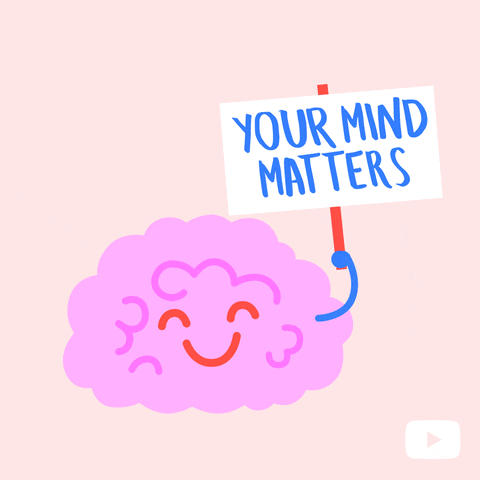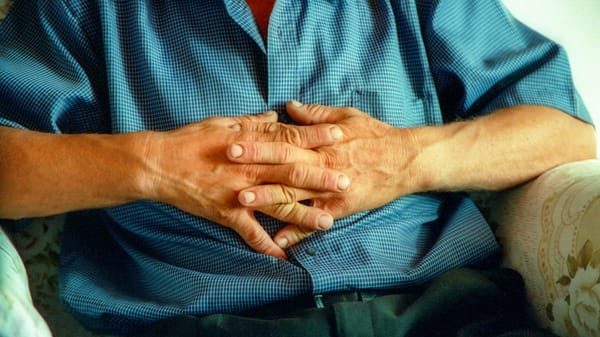The Hidden Key to Overcoming Teen Girls' Mental Health Struggles

Dive into our exploration of the unseen pressures and challenges faced by today’s adolescent girls. From the digital battlegrounds of social media to the personal struggles of body image, we shed light on the factors contributing to the rising tide of mental distress. Amidst the shadows of the pandemic, discover the resilience of our young women and the strategies empowering them to navigate their mental health journey. Join us as we strive for a future where every girl is heard, understood, and supported.
The Decline of Mental Health in Teen Girls and the Role of Social Media
Teen girls' mental health is declining, with various factors contributing to this concerning trend. Research indicates that girls are experiencing higher rates of mental distress compared to boys, with significant increases in feelings of sadness, hopelessness, and suicidal thoughts. The pressure of social media, trauma, family history of depression, hormonal changes during adolescence, and biological factors all play a role in the increased vulnerability of teen girls to mental health issues. Studies have shown that social media use, body image issues, cyberbullying, and loneliness are particularly impactful on girls' mental well-being.
The COVID-19 pandemic has exacerbated these challenges, further highlighting the need for improved access to psychological and psychiatric services for young people. Strategies to support teen girls include promoting social and emotional connectivity, discussing the influence of social media on self-perception, and providing resources for coping with anxiety and depression. Addressing these complex issues requires a multifaceted approach involving parents, educators, and mental health professionals to create a supportive environment for adolescent girls.
Root Causes and Implications of Adolescent Girls’ Mental Health Issues
Understanding the root causes might be the key to aboard a well-being crisis like this one. The alarming rise in mental health issues among adolescent girls can be attributed to a multitude of interconnected factors. Societal expectations, peer pressure, academic stressors, and exposure to social media contribute significantly to the challenges faced by girls as they navigate the tumultuous journey of adolescence.
From a young age, girls are bombarded with societal expectations and gender stereotypes that dictate how they should look, behave, and excel. The pressure to conform to unrealistic standards of beauty, intelligence, and success often takes a toll on their self-esteem and mental well-being. The perpetuation of these ideals through media, advertising, and cultural norms creates an environment where girls feel inadequate and constantly striving for unattainable perfection.
Peer relationships play a pivotal role in shaping girls' self-image and emotional development. The desire to fit in, gain acceptance, and maintain social status can lead to unhealthy behaviors and compromises in values. Peer pressure, fueled by the fear of rejection or exclusion, can push girls towards risky behaviors, substance abuse, and negative coping mechanisms to cope with stress and insecurity.
Also, the education system often places immense pressure on girls to excel academically, meet high expectations, and secure a promising future. The relentless pursuit of academic achievement, coupled with the fear of failure and disappointing others, creates a stressful environment that can undermine girls' mental health and well-being. The emphasis on standardized testing, grades, and college admissions further exacerbates feelings of inadequacy and anxiety.
Moreover, in today's digital age, social media platforms exert a powerful influence on girls' perceptions of themselves and their place in the world. The curated images, filtered lifestyles, and constant comparison inherent in social media contribute to feelings of inadequacy, insecurity, and low self-esteem. The pressure to maintain a flawless online presence, garner likes and validation, and keep up with unrealistic beauty standards can have detrimental effects on girls' mental health and body image.
All of this brings the detrimental effects of the mental health crisis among adolescent girls extend far beyond individual suffering, impacting their academic performance, social relationships, and long-term prospects. Left unaddressed, these issues can have profound consequences on girls' overall well-being and future success.
Mental health challenges often impede girls' ability to concentrate, retain information, and perform well academically. The stress and anxiety associated with schoolwork can lead to absenteeism, poor grades, and ultimately, dropout rates among girls who feel overwhelmed and unsupported.
Besides, the stigma surrounding mental health issues can isolate girls and prevent them from seeking help or confiding in others. Feelings of shame, embarrassment, and fear of judgment may deter girls from reaching out for support, leading to strained relationships with peers, family members, and trusted adults.
Girls grappling with untreated mental health issues are at a heightened risk of turning to unhealthy coping mechanisms, such as substance abuse, self-harm, or disordered eating patterns, to alleviate emotional pain and distress. Without proper intervention and support, these behaviors can escalate into serious health concerns and pose long-term risks to girls' well-being.

A Holistic Approach to Empowerment and Resilience
Chronic stress and anxiety associated with mental health issues can impair girls' cognitive development and decision-making skills, hindering their ability to think critically, solve problems, and navigate complex situations effectively. This can have lasting implications on their educational attainment, career prospects, and overall quality of life.
Addressing the mental health crisis among adolescent girls requires a multifaceted approach that combines proactive intervention, supportive environments, and targeted strategies to promote resilience and well-being. By empowering girls with the tools and resources they need to navigate challenges and prioritize self-care, we can foster a generation of confident, resilient young women who are equipped to thrive in an increasingly complex world.
Educating girls, parents, educators, and communities about mental health literacy is essential in reducing stigma, increasing awareness, and promoting early intervention. Providing girls with accurate information about common mental health issues, coping strategies, and available resources empowers them to recognize warning signs, seek help when needed, and advocate for their own well-being.
Besides, creating supportive environments where girls feel valued, heard, and supported is crucial in promoting their emotional well-being and resilience. Peer support groups, mentorship programs, and positive role models can provide girls with a sense of belonging, validation, and encouragement to navigate challenges, build healthy relationships, and develop coping skills.
Integrating mental health services into school settings ensures that girls have access to timely support and intervention when facing emotional distress or mental health concerns. School counselors, psychologists, and mental health professionals play a vital role in identifying at-risk girls, providing counseling and support services, and connecting them with community resources for ongoing care.
Encouraging girls to prioritize self-care, practice stress management techniques, and engage in healthy coping mechanisms is essential in building resilience and promoting mental well-being. Activities such as mindfulness, exercise, creative expression, and spending time in nature can help girls regulate their emotions, reduce stress, and foster a sense of balance and inner peace.
Advocating for policy changes and systemic support at the local, state, and national levels is critical in addressing the root causes of the mental health crisis among adolescent girls. Investing in mental health resources, expanding access to affordable care, and promoting gender-sensitive policies that address societal inequities and promote gender equality can create a more supportive and inclusive environment for girls to thrive.
Impact & Strategies to Mitigate the Mental Health Decline
The crisis affecting adolescent girls goes beyond individual struggles, influencing their future trajectories and contributions to society. The rise in suicidal ideation, persistent sadness, and declining confidence levels among teen girls since 2017 highlights the urgency of addressing this mental health crisis effectively.
All of it leads us to several problems as:
- Increasing Levels of Depression: Girls are experiencing unprecedented levels of depression that severely impact their ability to function optimally.
- Rising Anxiety Levels: Anxiety has become a pervasive issue among girls, hindering their social interactions, academic performance, and overall well-being.
- Suicidal Thoughts: Disturbingly high numbers of girls are contemplating suicide due to their deteriorating mental health conditions.
The mental health crisis among adolescent girls is a complex and urgent issue that demands immediate attention and concerted action from all stakeholders. By understanding the underlying factors contributing to this crisis, acknowledging its far-reaching consequences, and implementing targeted strategies to support girls' well-being, we can create a brighter and healthier future for girls everywhere.
Together, let us prioritize the mental health and resilience of adolescent girls and empower them to navigate life's challenges with confidence, compassion, and strength by:
- Reinforcing Confidence: Boosting girls' self-confidence, helping them find their voice, embrace growth, and manage stress are essential strategies to combat the mental health challenges they face.
- Addressing Social Media Influence: Recognizing the negative impact of social media on girls' confidence underscores the need for guidance in managing its influence on mental well-being.
- Empowering Career Planning: Providing mentorship and support for girls in career planning empowers them to pursue their ambitions and overcome self-doubt.
- Supportive Relationships: Establishing supportive relationships through mentorship programs can significantly impact girls' confidence and overall well-being.
- Foster Emotional Expression:Providing safe spaces for girls to express their emotions openly without judgment promotes emotional intelligence while reducing feelings of isolation or shame.
- Promote Mental Health Education: Implementing comprehensive education programs within schools and communities can increase awareness about mental health issues among both students and adults alike.
- Encourage Help-Seeking Behavior: Reducing stigma around seeking professional help by promoting open conversations about therapy or counseling encourages early intervention when signs of distress arise.

Anecdote
Meet Sarah, a bright and ambitious 16-year-old girl who excelled in academics and sports. However, behind her confident facade, Sarah struggled silently with overwhelming anxiety that clouded her every decision. The pressure to perform perfectly in every aspect of her life weighed heavily on her young shoulders, leading to sleepless nights and a constant sense of dread.
One day, unable to bear the burden any longer, Sarah confided in a trusted teacher who guided her towards seeking professional help. Through therapy and support, Sarah learned to manage her anxiety, rediscovering her inner strength and resilience.
Your Top Questions Answered
How to identify a girl with mental health issues?
Identifying a girl with mental health issues involves observing changes in behavior, mood, and functioning. Look for signs such as withdrawal from social activities, sudden changes in eating or sleeping habits, irritability, mood swings, excessive worrying, or difficulty concentrating. Notice if she expresses feelings of sadness, hopelessness, or worthlessness, and pay attention to any mentions of self-harm or suicide. Physical symptoms like headaches, stomachaches, or fatigue can also indicate underlying mental health concerns.
Additionally, consider environmental factors such as stress at school or home. Regular communication with the girl, along with maintaining awareness of her overall well-being, can help detect any emerging mental health issues. If you notice concerning signs, offer support, and encourage her to seek professional help from a therapist or counselor.
How to help a girl with mental health issues?
To support a girl with mental health issues, start by actively listening to her and validating her feelings. Encourage open communication and advocate for professional help if necessary, such as therapy or counseling. Provide consistent emotional support and promote healthy coping strategies like exercise and mindfulness. Create a supportive environment at home, school, and in the community, fostering positive relationships and understanding.
Educate yourself about her specific condition and available resources. Be patient and persistent in your support, recognizing that healing takes time. Encourage self-care practices and prioritize her well-being. By offering understanding, empathy, and practical support, you can help the girl navigate her mental health challenges and promote her overall resilience and well-being.
What are some of the long-term effects of untreated mental health issues in teen girls?
Untreated mental health issues in teen girls can have severe long-term effects, impacting various aspects of their lives. Research indicates that mental health problems in childhood and adolescence can lead to impaired mental health, lower life satisfaction, poorer quality of life, and difficulties in sexual and reproductive health in young adulthood. Specifically, internalizing and externalizing problems during adolescence have been associated with lower life satisfaction, poorer quality of life, and risky health behaviors later in life.
Moreover, a recent report from the CDC highlighted alarming rates of mental health issues among teen girls, with nearly one in three high school girls considering suicide in 2021, a 60% increase since 2011. The same report revealed that more girls reported persistent feelings of sadness or hopelessness, affecting their ability to engage in normal activities. Additionally, emergency-room admissions for self-harm among young girls have tripled between 2009 and 2017.
These trends underscore the urgent need for early intervention and support to address mental health challenges in teen girls to prevent long-term consequences.
What are some of the short-term effects of untreated mental health issues in teen girls?
Untreated mental health issues in teen girls can result in immediate effects such as increased feelings of sadness, hopelessness, and thoughts of self-harm. The pressure of social media, trauma, family history of depression, and hormonal changes during adolescence can exacerbate these issues. Research shows a concerning rise in suicidal ideation among high school girls, with a significant impact on their ability to engage in daily activities. Addressing these short-term effects promptly through early intervention, support systems, and access to mental health resources is crucial to prevent further escalation of mental health challenges in teen girls.
How can we promote mental health awareness among teen girls?
Promoting mental health awareness among teen girls is essential for their well-being. Encouraging open conversations about mental health, normalizing discussions, and providing education on common conditions can help reduce stigma and increase understanding. Supporting teens in advocating for their mental health needs, emphasizing the importance of seeking help when necessary, and fostering a supportive environment are crucial steps. Utilizing social media platforms with positive messaging, hashtags for awareness, and creating a safe space for discussions can effectively reach and engage teen girls.
By empowering them to prioritize their mental health, promoting self-care practices, and offering resources for support, we can contribute to building a healthier and more resilient generation of young women. It is vital to address mental health proactively, provide access to resources and guidance, and cultivate a culture that values mental well-being as much as physical health among teen girls.
Key Takeaways
- Prioritize mental health education and awareness programs in schools and communities.
- Foster supportive relationships to provide guidance and encouragement for girls facing mental health challenges.
- Encourage open dialogue about mental health issues to reduce stigma and promote help-seeking behavior.
- Promote self-confidence and emotional expression as tools for building resilience against mental health struggles.
- Early intervention is crucial in addressing depression, anxiety, and suicidal thoughts among adolescent girls.
- Mentorship is crucial in promoting girls' happiness, optimism, and confidence.
- Reinforcing self-confidence and providing guidance on managing stress are vital strategies to mitigate the mental health decline.
- Social media plays a significant role in impacting girls' confidence negatively, emphasizing the need for guidance in navigating its influence.
- Career planning and mentorship are essential for empowering girls to pursue their aspirations and overcome self-doubt.
- Taking proactive steps to support and mentor adolescent girls can have a profound positive impact on their confidence, well-being, and future success.

Thank you for reading this post!
If you found it helpful or informative, please consider sharing a 7 day free trial with your friends, family, or colleagues who might benefit from it.
Your support helps me reach more people and spread awareness on important topics like this. Together, we can make a difference!
References
https://www.statista.com/statistics/666374/mental-illness-in-the-past-year-among-us-women-by-age/
https://www.mentalhealth.org.uk/explore-mental-health/statistics/men-women-statistics
https://www.who.int/news-room/fact-sheets/detail/adolescent-mental-health
https://www.mentalhealth.org.uk/explore-mental-health/statistics/children-young-people-statistics
https://www.agendaalliance.org/our-work/projects-and-campaigns/womens-mental-health-facts/
https://www.aha.org/news/blog/2022-07-13-how-respectful-dialogue-can-reduce-mental-health-stigma
https://opa.hhs.gov/adolescent-health/healthy-relationships-adolescence
https://www.ncbi.nlm.nih.gov/pmc/articles/PMC5314742/
https://www.betterhealth.vic.gov.au/health/healthyliving/Strong-relationships-strong-health
https://www.ncbi.nlm.nih.gov/pmc/articles/PMC8835394/
https://www.psychiatry.org/news-room/apa-blogs/mental-health-education-for-youth-mental-wellness
https://www.ncbi.nlm.nih.gov/pmc/articles/PMC8818094/




